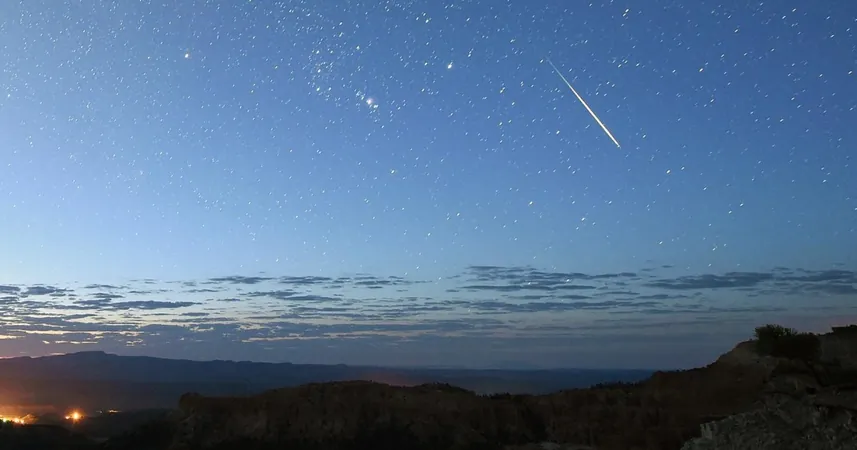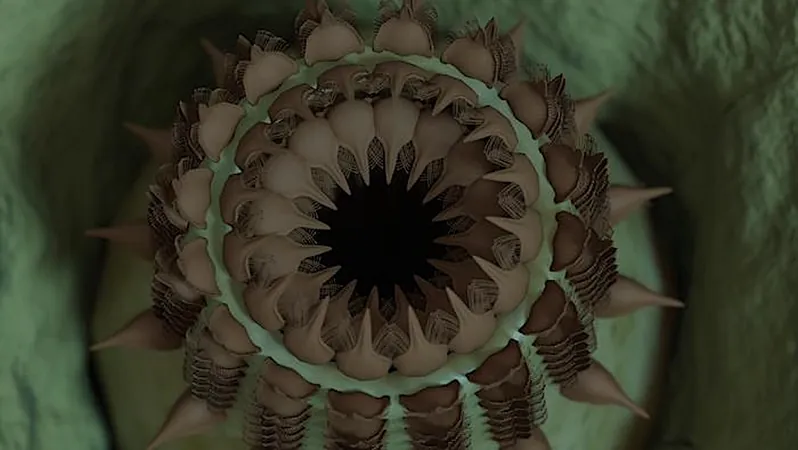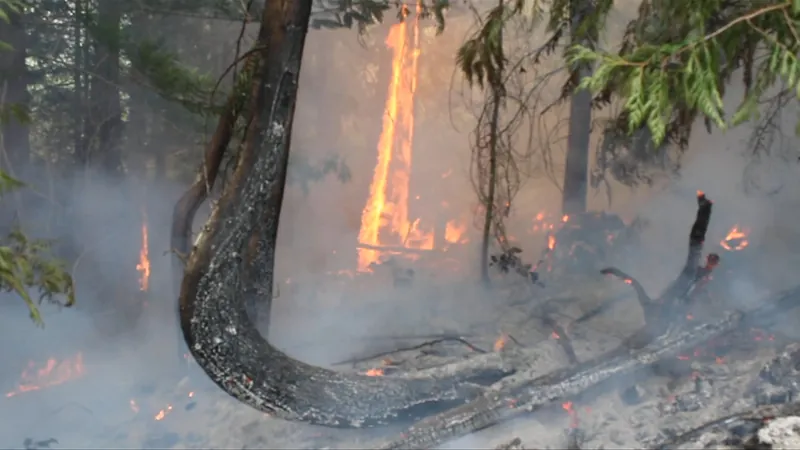
Catch the Summer Skies: A Guide to Spectacular Meteor Showers!
2025-07-19
Author: Benjamin
Don’t Miss Out on This Summer's Shooting Stars!
This summer, the night sky is set to dazzle as three incredible meteor showers light up the heavens, providing stargazers with ample opportunities to witness shooting stars. Get ready for an unforgettable cosmic spectacle!
The Cosmic Line-Up: Three Meteor Showers!
This month features the annual alpha Capricornids, the Southern delta Aquariids, and the renowned Perseid meteor shower—all active at the same time, with each event running through mid-August. Make your summer nights magical by planning some celestial viewing!
Alpha Capricornids: A Sparkling Show!
The alpha Capricornids and the Southern delta Aquariids will reach their peak from July 29 to 30, while the Perseids will shine brightly in August. Although the alpha Capricornids aren’t the most prolific, they can still surprise viewers with several bright fireballs. Under ideal conditions, you can spot about five meteors per hour, especially with the moon just 27% full—making for perfect viewing!
These meteors trace back to debris from comet 169P/NEAT, which orbits the sun every 4.2 years, creating those breathtaking streaks of light we love to see.
Southern Delta Aquariids: A Southern Delight!
Primarily visible in the Southern Hemisphere, the Southern delta Aquariids can offer up to 25 meteors per hour. However, these meteors are often fainter and best seen in the early morning hours. This shower emerges from debris of comet 96P/Machholz, which completes its journey around the sun every 5.2 years.
Perseids: The Crown Jewel of Meteor Showers!
Anticipated by many, the Perseids are expected to peak from August 12 to 13. Known for their impressive display, these shooting stars can produce up to 100 meteors per hour! However, stargazers should be wary this year, as the moon will be about 84% full, likely obstructing visibility of fainter meteors.
The Perseids are caused by Earth passing through the debris of comet 109P/Swift-Tuttle, ensuring that even with some interference, enthusiasts will want to keep their eyes peeled for those bright lights racing across the sky.
Tips for Optimal Meteor Watching!
To maximize your chances of witnessing these cosmic wonders, find a dark location away from city lights, lie back comfortably, and give your eyes time to adapt to the darkness. Bring a blanket, and don’t forget some snacks to enjoy while you gaze at the universe!
This summer, turn your nights into a celestial adventure. Whether you're an avid astronomer or a casual sky enthusiast, there's nothing quite like the thrill of catching shooting stars. Happy stargazing!









 Brasil (PT)
Brasil (PT)
 Canada (EN)
Canada (EN)
 Chile (ES)
Chile (ES)
 Česko (CS)
Česko (CS)
 대한민국 (KO)
대한민국 (KO)
 España (ES)
España (ES)
 France (FR)
France (FR)
 Hong Kong (EN)
Hong Kong (EN)
 Italia (IT)
Italia (IT)
 日本 (JA)
日本 (JA)
 Magyarország (HU)
Magyarország (HU)
 Norge (NO)
Norge (NO)
 Polska (PL)
Polska (PL)
 Schweiz (DE)
Schweiz (DE)
 Singapore (EN)
Singapore (EN)
 Sverige (SV)
Sverige (SV)
 Suomi (FI)
Suomi (FI)
 Türkiye (TR)
Türkiye (TR)
 الإمارات العربية المتحدة (AR)
الإمارات العربية المتحدة (AR)